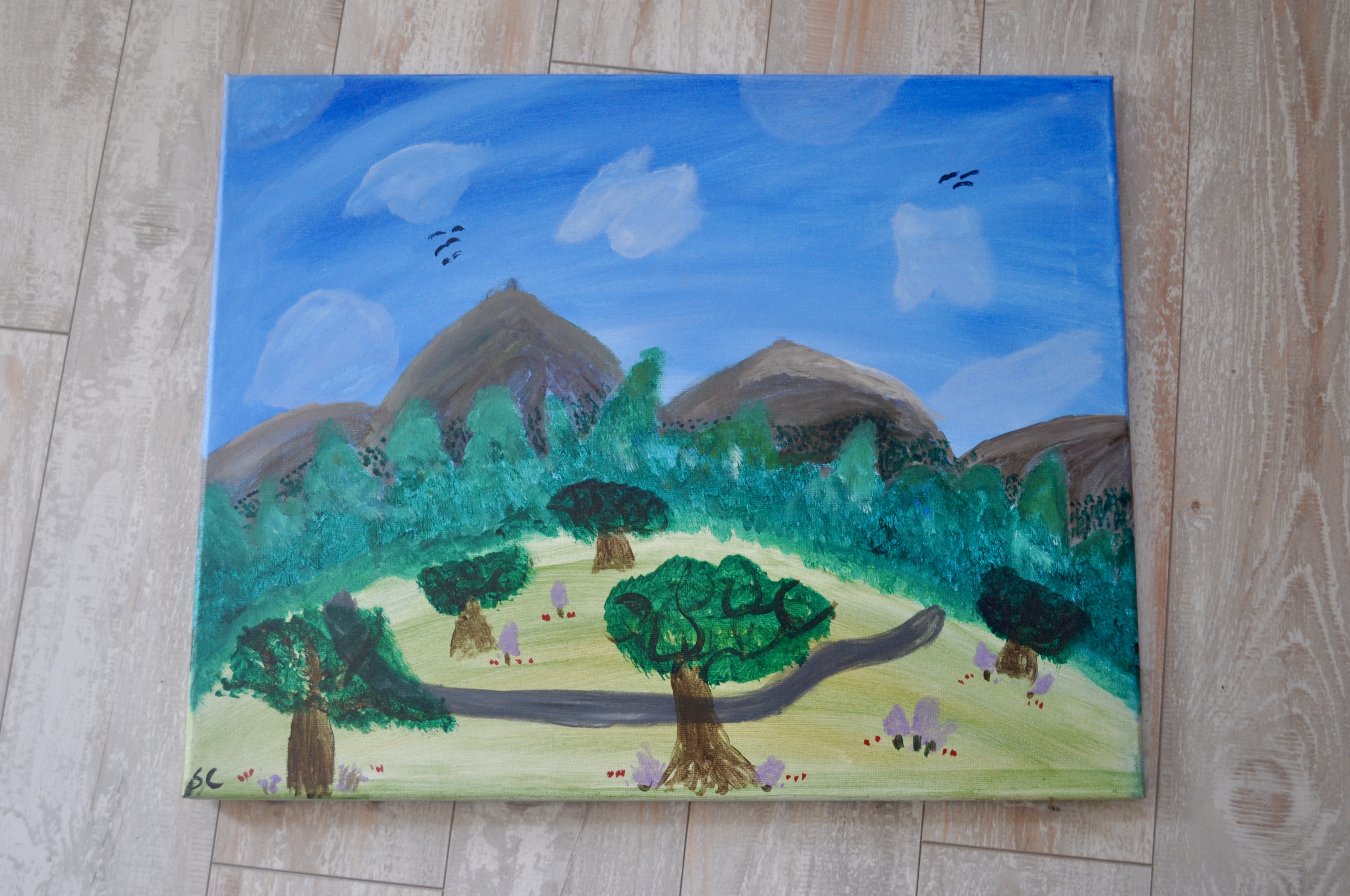Empty Space and Writing by Sara Codair
I hate empty space. Fortunately, this helps my writing process more than it harms it.
When I see emptiness, I feel the need to fill it. If there is a room with too much empty floor, I want to get more furniture. If the table is empty, I get urges to clutter it up with books and papers. When I clean, I move the clutter, wash the dirt away, and put the clutter back.
My disdain for space is one reason why painting or drawing has never worked for me. Last summer, I went to a bachelorette party at a paint bar in Arlington, MA. We were painting a hill in Boston with the skyline in the background. I closely followed directions for the sky and hill, but replaced the buildings with mountains, because I hate cities. Even though they are lacking empty spaces, they are filled with the wrong things.
 If I had just followed directions after that, put in the prescribed three trees and small clumps of flowers, I would have been fine. But I felt like the foreground was too empty. So I kept adding more trees and flowers until the whole front was just utterly cluttered with my doodles. What could have a been a clean painting of a park overlooking a mountain range morphed into a chaotic jumble of rotten broccoli-trees, dotty flowers and distorted, oversized lupines.
If I had just followed directions after that, put in the prescribed three trees and small clumps of flowers, I would have been fine. But I felt like the foreground was too empty. So I kept adding more trees and flowers until the whole front was just utterly cluttered with my doodles. What could have a been a clean painting of a park overlooking a mountain range morphed into a chaotic jumble of rotten broccoli-trees, dotty flowers and distorted, oversized lupines.
Most of the time, my compulsion to fill space is an asset to my writing process. It means I seldom get writers block because if I see the blank page in front of me, I need to fill it with whatever stories or ideas are wrecking havoc in my head. What I write isn’t always good, but I keep going through the crappy parts of my mind until get back to better writing and sometimes, some of the crap turns out to be salvageable with significant revision and editing.
What often worries me with this compulsion is that I may add too much to a story later when I should be cutting back. I’m not worried that I will write too much initially. I don’t think that is possible. The more I write, the more I know about the character. What worries me is revision. Will I make the story drag on too long? Add scenes and characters that weren’t needed? Somewhere along the line, I will come to a point where I need to stop revising a story. Period. But how do I know when I’ve reached that point?
Right now, my answer is when that particular piece gets published. However, for the ones that don’t, I occasionally find myself worrying if draft seven might have been better than draft eight.
Maybe as more of my work gets published, I’ll get a better sense of what “done” means to me. On the other hand, I may have to concede that the concept of “done” just doesn’t apply to writing.
©2016 Sara Codair